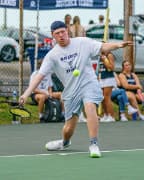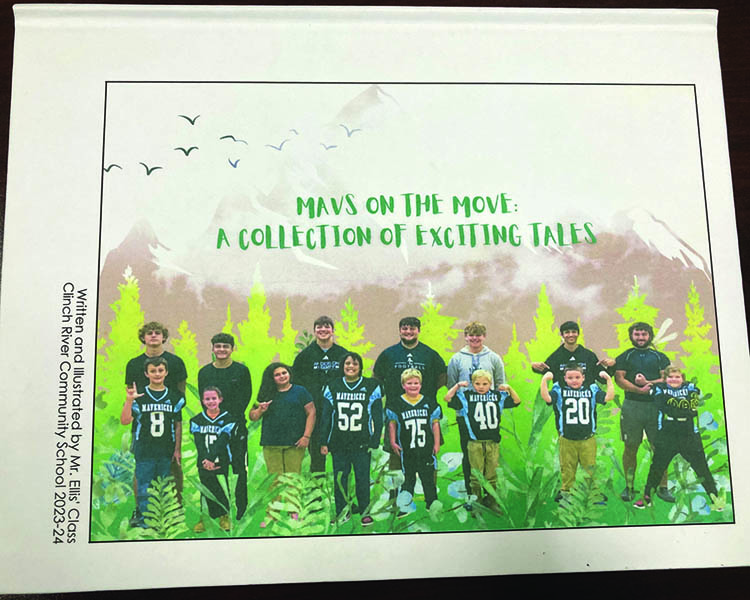Mav mentors help CRCS students write book
You may know them on the field, but the Anderson High School Mavericks are helping younger kids in the classroom.
On Fridays for a semester, a group of Mavs senior football players mentored nine Clinch River Community School elementary-age students and helped them write a book.
Clinch River Community School sits just up the hill from Anderson County High School, home of the Mavs. It serves students with special needs or transitioning from being homeschooled.
Several senior Mavs mentors stressed that the stereotypes people had about CRCS students didn’t hold true for their own experiences.
“Just because you’ve come from a bad situation doesn’t mean you’re a bad kid,” said Graycen Bradshaw, offensive and defensive lineman.
“In Anderson County people go, ‘The kids up at CRCS, those are the bad kids.’ I think the kids we worked with are a prime example of why this isn’t a ‘bad kids’ school.’ Like, these kids are great, and I don’t think they should be given that bad of a name,” said kicker Josh Valero. “If you just spend a little bit of time with them, you’ll see that.”
The Mavs also led with reading and athletic activities including football- and volleyball-related challenges.
They helped with class work and led a scavenger hunt, which ended with finding the book the students wrote with their mentors’ help and later illustrated. The CRCS students wrote about fictional adventures involving themselves and their mentors.
Coach Brent Ellis led the program this year. While Mavs have helped the CRCS students in the past, he said he and other staff came up with the book idea this year and hope to do it again
“This is something they get to keep for the rest of their lives and look back on,” he said, regarding the book for both the CRCS students and the Mavs.
“I noticed that it was difficult to get the students to think on their own and to get the students to organize their thoughts,” Ellis said.
He said working with a “study buddy” helped the students organize their thoughts and get them on paper.
He said the program also helped the children develop communication skills, something running back Nick Moog also noticed.
“Mine was pretty quiet at first,” said Moog. “He didn’t like to share a lot, and then by the end of the time that we had together, he was talking like crazy, helping me write the story that’s in the book. We probably wrote four stories together just because we were so comfortable together. We had our own little handshake, too.”
Ellis said he was surprised by “the creativity that the kids were able to come up with” and their ability to “stay on task.”
“They’ll remember that they helped the less-fortunate kids in their community,” Ellis said regarding the players. “Usually, high school football players are wanting to live a fun life and don’t want to have responsibility. These guys are messaging, asking ‘how is Jayden doing?’ or ‘how is Aiden doing?’” He described it as a “huge connection.”
Bradshaw similarly spoke of the importance of giving back to the community, not just for him and his fellow Mavs, but as a lesson to teach the CRCS students.
“Giving back to the community is a huge thing,” he said. “No matter where you are, no matter if you’re playing sports or you’re in the band or you’re just going to school, giving back to the community is one of the most important things because that’s how you build a strong community. You start when they’re young, hanging out, teaching them good lessons, and whenever they grow up, they can do the same thing.”
Ellis said the school system started a similar program with basketball players helping CRCS students, called “fast break Fridays,” mentoring the students during the second semester, with activities asking the students to spell words after dribbling through cones.



